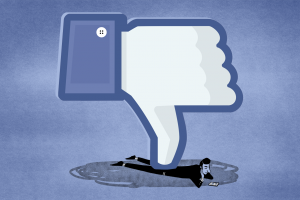Music is present in everyone’s life whether you like it or not. Be it at restaurant, at home or even while watching movies, they are always going to be music somewhere. This makes me question whether listening to music actually have beneficial traits especially in terms of cognitive abilities. Thus, I wanted to research on whether listening to music makes us smarter.
What is the impact of music on cognitive performance?
Rauscher, Shaw, and Ky (1993) conducted a study to find out whether listening to Mozart’s music would improve spatial abilities. They recruited 36 undergraduate students and put them into three experimental conditions. One condition had to listened to Mozart, the other stayed in silence and the last one was being intructed on relaxation. However, the article did not mention anything about the relaxation instruction and how it worked. After being in these conditions for around 10 minutes, the researchers gave them an abstract visual reasoning test. They found out that those who listened to Mozart’s composition were performing better than those who did not. However, it should be noted that the enhancement in spatial abilities last for only 10-15 minutes. They called this the “Mozart effect”.
I think that the hypothesis of Rauscher et al. (1993) was whether listening to music improves spatial abilities. The null hypothesis would be that listening to music does nothing. Moreover, the design of this study is likely to be a randomized control trials because the participants were being put into different conditions. The independent variable should be listening to music while the dependent variable is the spatial abilities. This should demonstrate that they are trying to find a causal relationship between the variables.
The meta-analysis of Chabris et al. looked at 16 studies that looked at the Mozart effect on the performance of various cognitive task. Chabris had mentioned that one study concerning British schoolchildren that performs better when they listen to popular music for their ages. He came up with an explaination that the Mozart effect works as a means for arousal. The study defined arousal as a mental and physical activation from hearing what the participants are enjoying, not necessary has to be only Mozart’s music.To put it simply, I would explain this arousal effect by thinking about how our mood follows the flow of the music.
Schellenberg conducted meta-analysis to further investigated both Rauscher and Chabris’s findings. One of the experiment were Thompson, Schellenberg and Husain (2001), who looked more into this arousal theory. They tested the participants with fast tempo piece by Mozart in a major key and a slow tempo piece by Albinoni in a minor key. The results were that arousal were “higher” with the Mozart piece than in Albinoni, meaning that there is the Mozart effect on the spatial activities while there is none with the Albinoni. Moreover, the arousal level were proportional to the speed of the Mozart piece. These researchers conducted a similar study a year later but change it for non-spatial abilities such as test processing, where they also found similar results as the speed was better with Mozart than Albinoni.
Schellenberg and Hallam also tested cognitive performance for children who did not have arousal nor mood at their disposal. The participants were 10-11 years old children and they uses pop music and Mozart composition in their controlled conditions. They found out that children performed better at spatial tasks with pop music than Mozart’s composition and this was explain that it is due to their preferences. The article did not give further specification about this experiment, whether they had a silent group or not.
Moreover, Schellenberg did another study with 5 years old children and looking at their creativity. They have to draw with crayons after listening to either Mozart composition or familiar children’s songs. They also include singing for the children’s song. They found that children who are either listening or singing their familiar songs are more creative and took more time in drawing than those who listened to Mozart. Listening and singing had little differences between us each other. Schellenberg concluded that music can makes us smarter as it has shown to benefits us in the short term.
Schellenberg’s meta-analysis seems to have rejected the null hypothesis because all of his experiments seems to find a causal link between listening to music and cognitive performances such as spatial and non-spatial abilities or creativity.
The article also highlighted two more studies that also found no sign of Mozart Effect. The first study was conducted by Stough et al. (1994) who uses the Raven’s Progressive Matrices to test out whether music helps spatial abilities. The Raven’s Progressive Matrices was considered to be an intellectual test that requires visual-spatial skills. This was stated to be similar to the test used by Rauscher et Al. They tested it on 114 college students of age 18 to 51 years with a mean score of 27.3 years old. The researcher found no mean score differences from the test between those who were exposed to Mozart and the group who did not listen. The other study was conducted by Kenealy and Monseth (1994) who uses similar testing measure for spatial evaluation and controls group with music and none. The partcipants were between 14 to 16 years old. They also found the same results where there is no significant difference between the controlled groups. Thus, this means that these two studies seems to have failed to reject the null hypothesis.
Evaluating of the studies:
I have found two opposing results with the Schellenberg studies, who found that listening to music does benefits our cognitive abilities for a short period of time while the Stough et al. (1994) and Keanealy and Monseth (1994) studies claims to have found nothing about the Mozart effect. However, I think that it is important to bear in mind that the studies conducted by Schellenberg were meta-analysis. This means that the results are unlikely to be a fluke and were guarded against false positives. However, there is a possibility of file drawer problems in a meta-analysis study. This means that the experimenters could have select what data they wanted to published. However, I personally believe that this is unlikely because he did choose to published that the results only last for the short-term.
Also, we should consider that the studies of Stough et al. (1994) and Keanealy and Monseth (1994) have not put to test non-spatial task. Hence, more meta-analysis studies are needed on the non-spatial task to demonstrate whether his findings were a fluke or not. Moreover, the design of all the studies were likely to be randomized control trial because they all have control group of people involving at least two conditions, one being exposed to music and one being in silence. Hence, the design of the studies were experimental which also minimized the possibility of a third confounding variables. The dependent variable all of these studies were soft-endpoint because they are looking at things that are believed to correlated with intelligence such as spatial and non-spatial task or creativity in drawings. Meta-analysis are more generally reliable than studies. Thus, I am more lenient toward the Schellenberg’s meta-analysis conclusion.
If I were to replicate these studies, I would try to put increase controlled group with more variety in the type of music such as pop, rock, jazz etc … because all of these studies seems to focus only on either classical music such as Mozart pieces and a bit of the popular music for the childrens. This is not wide enough compare to the large genres of musics that exist in this world. Therefore, I believed that more studies are needed for stronger evidence that listening to music can improve our cognitive abilities.
Sources:
http://files.eric.ed.gov/fulltext/ED390733.pdf
https://www.researchgate.net/publication/12823070_Prelude_or_requiem_for_the_’Mozart_effect’
http://cdp.sagepub.com.ezaccess.libraries.psu.edu/content/14/6/317.full
http://pms.sagepub.com.ezaccess.libraries.psu.edu/content/81/3_suppl/1379.full.pdf+html














